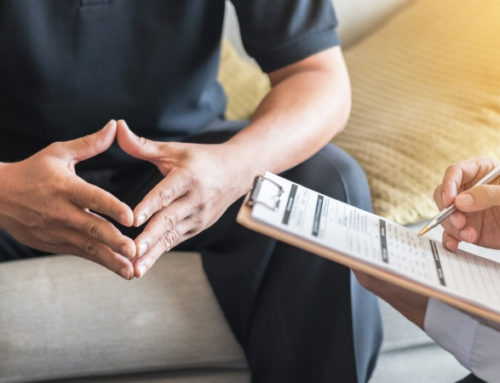When someone who is loved passes away, it changes the family and friends of the deceased person. Missing the person causes sadness, loneliness, and even anger or resentment. Dealing with grief leads to having trouble concentrating, eating and sleeping. If the person who passed away was a member of your immediate family and household, adjusting to the loss is especially difficult. Trying to manage life without the help of your lost loved one, not only causes more stress but confusion. The roles that are assigned among members of the family or household are now incomplete. During this time, there is no right or wrong way to mourn.

Grieving the Loss of a Loved One is Not Easy
Grieving the loss of a loved one might cause some people to remain distant, while others will desire close company to replace their loved one’s presence. Others might protect themselves by seeming joyful and unaffected. How people express their grief is personal, and everyone will do what they need to cope. The amount of time it takes to mourn and grieve also varies. Mental Health practitioners do not declare a set amount of days, weeks, months, or years as usual or healthy. What they do look for is when grief becomes debilitating.
According to the National Center for Biotechnology Information advances in science and health, losing someone who is loved will cause a period of intense grief, but in time will lessen, and the person will be able to experience life without their loved one, more relaxed. However, the NCBI states that some age groups, as well as others, will continue grieving and develop a condition known as Complicated Grief.
Loss of a loved one usually leads to acute grief characterized by yearning and longing, decreased interest in ongoing activities, and frequent thoughts of the deceased. For most, acute grief naturally evolves into a state of integrated grief, where the bereaved is able to reengage with everyday activities and find interest or pleasure. About 7% of bereaved older adults, however, will develop the mental health condition of Complicated Grief (CG). In CG, the movement from acute to integrated grief is derailed, and grief symptoms remain severe and impairing. (NCBI)
Although the statistics are low for developing Complicated Grief, it is still critical that you or your family members are well-supported to cope with the loss. By considering the importance of receiving professional counseling on what you or a family member is experiencing as a result of the loss, can make the grief period less challenging. Accepting help from a licensed psychotherapist who is experienced in helping with the grief and loss process is the beginning of how to recover from the death of the individual you have so dearly cared for. By working with a therapist, they can help you overcome your feelings of sadness, yearning, guilt, anger, and regret in a safe, nonjudgmental environment.
An experienced psychotherapist will explain that the thoughts, actions, and behaviors of an individual during the grieving process can be divided into two types of grief.
- Instrumental: focusing on “busy” tasks while trying to minimize and hide your heightened emotional expressions.
- Intuitive: using the experience of loss and grief as a time to explore the lost relationship, share your feelings with others, identify your role in your life.
Professional psychotherapists will support your personal emotions as there are varied reactions to the death of a loved one, and no one way is right or wrong. Because the experience of grief is dependent on the individual and their relationship to the person who passed away, it is beneficial to process your feelings and emotions with someone who can listen and encourage healthy reactions while having compassion and empathy as the period of grief occurs.

You don’t have to go it alone
For mental health support for yourself, a family member, or a friend who is suffering due to the loss of a loved one, our therapy approach is affordable, discreet, and backed by decades of experience.
Depression, sadness, anxiety disorders, stress, and worry can make it difficult to find happiness in your life. We all need support at different times in our lives. Most of our clients seek help when their current way of dealing with life’s challenges no longer works for them. With a caring, non-judgmental and solution-focused approach, we will explore your issues and challenges in a safe therapeutic environment at our private practice in Delray Beach, Florida.
We also offer remote online therapy from the comfort and security of home that will allow you to learn more effective ways of managing your anxiety and stress.
Let’s walk the path to freedom from depression and anxiety together. If you’re ready to let go of the sadness, depression, fears, worries, and anxieties that are making life difficult, check out our Anxiety & Depression Support Group hosted the 1st Tuesday of each month at the Counseling Center for Growth and Recovery.


